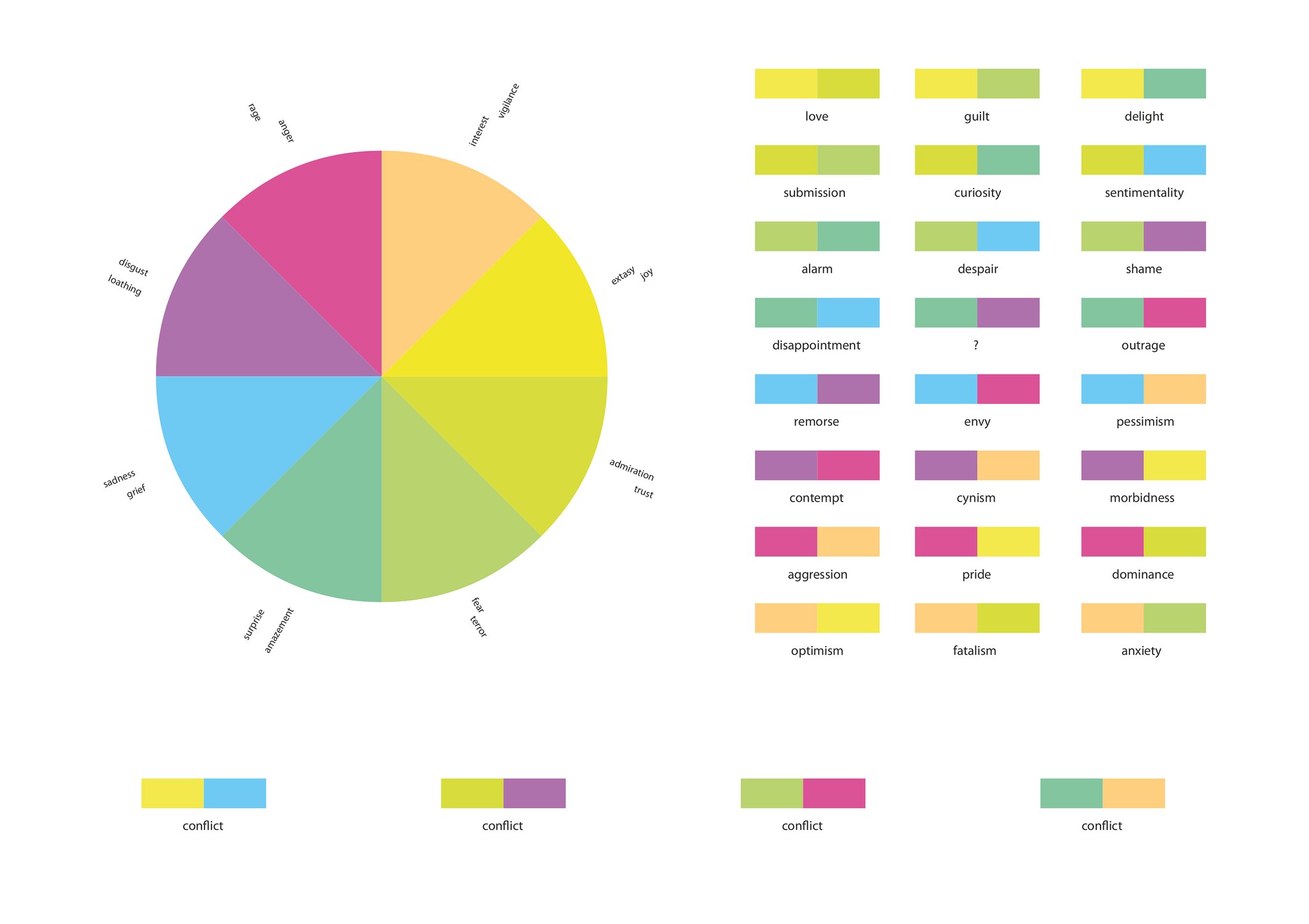The importance of understanding emotions became widely recognized in 1995, with the publication of journalist Daniel Goleman’s best-selling book Emotional Intelligence. Understanding emotions is an valuable social skill that is rarely taught, but can be learned.
Learning to recognize your own emotions and those of others is an important step toward emotional intelligence that will bring improved communication and relationships. While you cannot control your emotions, much less those of others; it is possible, and advisable, to regulate how you react to them.
What are emotions?
Emotions are psychological responses to stimuli, or triggers. Emotions can be positive or negative, mild or intense, and the way we experience them is through feelings, which are often physiological. The emotion of shame, for example, can lead to feeling uncomfortable, embarrassed, or disgraced, depending on its intensity.
Psychologist, Rachel Allyn Ph.D. describes emotions as “raw data,” which trigger different feelings that can vary depending on the person. For instance, when the emotion of anger comes up between two people, one party might feel frustration, while the other experiences it as irritation, based on their individual notions and thoughts.
Emotions can be powerful—they influence our thinking and behavior, and activate survival instincts. Intense emotions can reduce our ability to think clearly; but fortunately emotions are short-lived. The feelings generated by emotions can last much longer.
Success
You are now signed up for our newsletter
Success
Check your email to complete sign up
Dr. Paul Ekman, a pioneer in the study of emotions, named fear, anger, sadness, joy, surprise and disgust as the six basic emotions produced in the human brain, eventually adding embarrassment, shame, excitement, amusement, satisfaction, trust, pride, and contempt as further core emotions.

Later, it was determined that emotions could be blended like colors to create more complex emotions. A study by Frontiers for Young Minds uncovered a whopping 25 different categories of emotions through the study of 300,000 emotional responses submitted by participants subjected to a variety of emotionally-stimulating video clips.
What is emotional intelligence?
Emotional intelligence is the ability to recognize and manage one’s own emotions, and to react conscientiously to others’ emotions. Emotionally intelligent people are good at conflict resolution, keeping their cool in stressful situations, and tuning in to others’ needs. They are unlikely to react rashly, because they understand that even strong emotions are temporary.
To achieve emotional intelligence, five areas must be addressed; the first and most crucial being self-awareness.
Attaining self-awareness
Self-awareness encompasses the ability to accurately assess your feelings and what triggers them, your capabilities and limitations, and how others perceive you. To gain self-awareness, it is important to be non-judgemental, accepting, and realistic in your assessment, even when you find something unpleasant. There are a number of effective methods for improving self-awareness.

Keep an emotions journal. Take a moment each evening to reflect on the events of the day and what emotions they triggered. Write down how you felt and how you reacted; and, if applicable, how you felt about your reaction. Remember to be completely honest with yourself.
Periodical review of your emotions journal will help you recognize trends and circumstances that trigger strong emotions, which will, in turn, enable you to anticipate stressful situations and maintain emotional stability.
Seek outside input. To have an accurate idea of how others perceive you, ask those who know you well for their honest opinion of you, including strengths and weaknesses, assets and faults. Be careful not to judge their assessment—view it as constructive feedback—an important tool for building self-awareness.
Compare the varied assessments to determine trends and get an overall view of how you are perceived.
Practice meditation and mindfulness.
Practice being present in heart and mind, and experiencing life in a non-judgmental and welcoming way. This “mindfulness,” is a great way to become more self-aware. Meditation, too, can help one achieve greater consciousness.
“In mindfulness one is not only restful and happy, but alert and awake. Meditation is not evasion; it is a serene encounter with reality.”
Thich Nhat Hanh
Talk to yourself. While your inner feelings may be too private or too complex to comfortably share, you can always hold a meaningful conversation with yourself. We often sort out problems subconsciously while engaged in other activities; but one can also take control of where the mind wanders.
Think about what you want to learn, make an agenda, and have a meeting with your mind. When you discover the real you, you may have a new best friend.
Managing your emotions
Once you are able to recognize your emotions, it will be easier to control your reactions to them, or “self-regulate.”

Stress is a state that keeps us on our toes during threatening situations, but it can also intensify our reactions to emotions, resulting in agitation and foul moods. Moderating stress is an important component of managing emotions that can help us function responsibly and effectively.
To calm the mind and allow yourself time to process your feelings, take a step back, give yourself a break, or shake it off with some exercise or music. Mindfulness, again, is an excellent tool for gaining composure, and opens the door to problem-solving and acceptance.
Another technique that aids self-regulation is cognitive reframing. This involves reinterpreting a negative situation in a positive way, thus changing your emotional response. Similar to looking for the silver lining, or seeing the cup half full, cognitive reframing lets you see the situation from an alternative perspective and interpret it with different emotions, thus circumventing useless reactions like self-pity or panic.
Intrinsic motivation
Emotional intelligent people are motivated by their inner needs, rather than extrinsic goals such as money and recognition. Intrinsic motivation focuses on internal rewards, like the satisfaction of a job well-done, spiritual growth, or the joy of creating something beautiful; fostering the drive to engage fully and be “in the moment.”

To improve your motivation, avoid focusing on external rewards as your main goal. Instead, take steps that will lead you to a meaningful internal goal with greater personal rewards. Keep things interesting by challenging yourself, and celebrate your progress.
Building intrinsic motivation can help you be more successful, as this practice drives the urge and commitment to do one’s best, take initiative, and achieve inner satisfaction. Psychology Today revealed that the mere thought of a meaningful goal has been shown to stimulate the prefrontal cortex in the brain, where planning and decision making take place.
Empathy, or conscientiousness
Now it’s time to take what you’ve learned about emotions and apply it to others. Understanding that everyone you encounter has their individual collection of emotional triggers and feelings—which may or may not coincide with yours—will facilitate empathy.

Emotionally intelligent people are skilled at perceiving and responding appropriately to others’ emotions. They are conscientious, and consider how their words and actions will affect others. You can build empathy by remembering a few things in everyday situations:
- Listen to others with focused attention. Put away distractions, make eye contact, and take in what they want to tell you. Let them complete their thoughts without interrupting or countering their position.
- Embrace a position that’s contrary to your own. Think about the other party’s side in a conflict and try to see it through their eyes. This helps bring the situation into perspective and diffuses strong opinions that may be unproductive.
- Put some effort into understanding others. Think about how you would feel in their shoes or how your life would be different had you experienced what they have. Step outside of your own situation and concerns to resonate with someone else’s—you will become more conscientious, and naturally respond with empathy.
Social Skills
Strong social skills will be the culmination of all your emotional intelligence training. Understanding emotions in yourself and others, being driven by the powerful force of internal motivation, and mastering the skills of regulation and empathy will improve all your social relationships.

Emotionally intelligent people interact well with others and build meaningful relationships. They possess the qualities of a team player, motivation, and persuasiveness. One of the most useful benefits of emotional intelligence is the enhanced ability to resolve conflicts.
Conflict resolution calls for rational thinking under stressful situations and the ability to understand and respond to others’ needs.
When things get heated, remember to step back, assess your own emotions, and calm down. Consider how the other party’s situation might affect their thinking, and try looking at the issue from their point of view. Come to an agreement about what the problem is, and try to think of solutions that will be mutually beneficial.
Keep your intentions cooperative, communicate clearly and with compassion, and you can’t go wrong.













